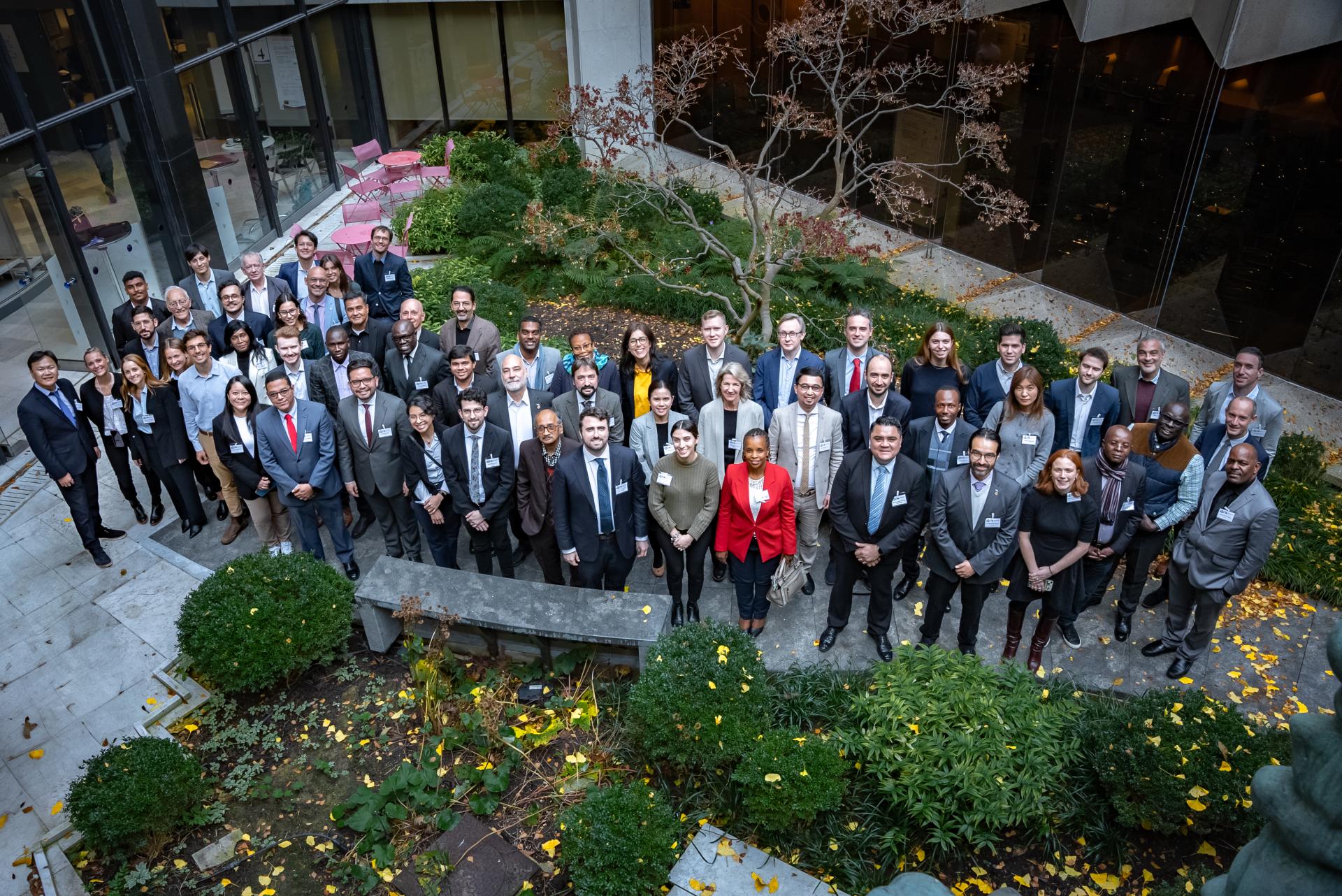C3A Annual Symposium
Navigating the mid-transition period What role for Ministries of Finance

On December 2-6, 2024, C3A organized its First Annual Symposium, taking place at the World Bank's Conference Center in Paris. A major event that aims to convene leading voices in global climate policy and research to jointly think through the most pressing issues facing Ministries of Finance and the whole-of-government in the face of a potentially unstable mid-transition period.
Context
The objective of a low-carbon and ecological transition is a complex and multidimensional transformation process that involves opportunities and risks. This transition takes place in an uncertain and challenging international macroeconomic context, which constrains the policy options available to countries as they also pursue energy security strategies, energy supply affordability and prudential management of their fiscal space.
Intensifying climate impacts tighten the transition trilemma between sustainability, affordability and security. However, rapid innovation and exponential growth in the deployment of green technology have significantly reduced costs in low-carbon sectors and increased their productivity and contribution to economic growth. Some technologies have reached, or may soon reach, tipping points where costs break parity with fossil sectors, although profit rates associated with green technologies remain lower. Additional trends may also help accelerate the transition, such as growing environmental demands from civil society organizations and other constituencies, and decarbonization as a potential source of geopolitical leverage.
We are thus entering a “mid-transition” period — a situation of rapid economic transformation in which both fossil and low-carbon systems coexist leading to economic, financial, political and geopolitical turmoil in combination with ongoing environmental crises. A systemic approach is key to designing policies that can help societies navigate through the mid-transition period. These include closing financing gaps without jeopardizing financial stability, advancing climate mitigation options while minimizing transition risks, adapting to physical risks and responding to climate damages and losses, and managing trade-offs within adaptation and transition efforts while maintaining fiscal and debt sustainability.
Public authorities in general and Ministries of Finance in particular have a key role to play in shaping and coordinating appropriate policy options to build economic resilience and manage the transition. Enhanced coordination at regional and global levels is also needed to ensure cross-border cooperation within supply-chains and diversification opportunities.
Objectives
The inaugural edition of the C3A Annual Symposium brought together leading voices in global climate policy and climate research to discuss the most pressing issues facing Ministries of Finance and whole of governments in navigating the mid-transition period. The objectives of this Symposium are threefold:
-
Exploring
Sharing and discussing frontier academic research on a cross-cutting topic chosen for its contemporary policy relevance, particularly for Ministries of Finance. A competitive call for research papers will be issued, and a series of keynote speakers will be invited to deliver thought pieces
-
Mobilizing
Mobilizing and showcasing the global Knowledge Network of the C3A program, expanding its reach and visibility from Global South countries, specifically in the thematic and regional areas of intervention. This will be done through policy panels in addition to the research presentations.
-
Promoting
Facilitating knowledge sharing and building up a library of resources for the key partner Ministries of Finance of the C3A program. Keynote lectures will showcase some of the leading messages of the symposium.
A successful inaugural edition
The First C3A Annual Symposium, held from December 2-6 at the World Bank Conference Center in Paris, was a resounding success. With more than 150 participants, both in-person and online, this inaugural edition brought together a distinguished group of experts, practitioners, and leaders from across the globe to discuss and explore ways to advance climate action 10 years after the COP21 Paris Agreement, with a particular focus on the role of Ministries of Finance during the critical mid-transition period. The discussions, knowledge exchange, and innovative ideas that were shared have set the stage for continued collaboration on the urgent issues of climate and nature policy, climate finance, and capacity building.
Designed as a platform to bridge the gap between science and policy on climate and nature-related economic and financial policies, This Symposium took the form of a 5-day international conference composed of different segments. Multiple formats featured this week of events to foster exchange among participants, knowledge and experience sharing, showcase cutting-edge research, and expand technical capacities to advance and cope with the various risks and opportunities that climate change and the ecological transition entail.
This inaugural edition of our Symposium was structured in two complementary segments: a Technical & Policy Segment (December 2-4) and a Research & Leadership Segment (December 6).
Technical & Policy Segment (December 2-4), closed-door
To prepare the Research & Leadership Segment held on December 6, the Technical & Policy Segment will take place on December 2-4. This segment will be composed of several working sessions aimed at Finance Ministry officials and designed to build technical capacity on climate-related policy, modeling, and transition scenarios for country partners. A range of topics will be considered including fiscal policy and debt sustainability, transition and climate risks, nature and biodiversity, and green innovation and industrial policy.
Research & Leadership Segment (December 6), public
Following the Technical & Policy Segment on December 2-4, the Research & Leadership Segment will take place on December 6. This one-day event will foster high-level policy dialogue between senior policymakers from developed and developing countries and world-renowned climate scientists and economists. It will also provide a platform for researchers and practitioners to present cutting-edge scientific research and distill policy lessons through research working papers and policy briefs.

